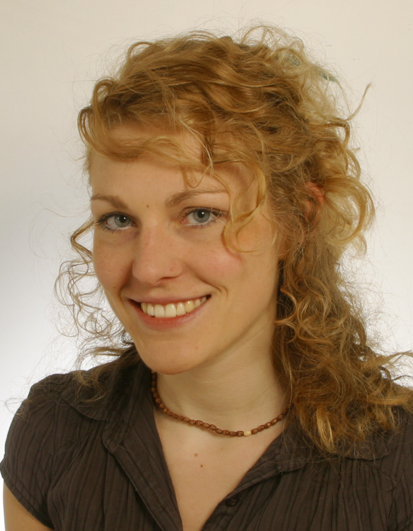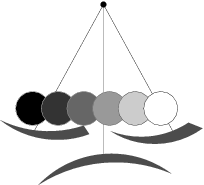Recent
Publications and Speeches
Newsletter
News
Stopping Biodiversity Loss, Human Rights, and International Environmental Law - our Biodiv Constitutional Lawsuit as "World Premiere"
The CBD as well as (national and transnational) human rights contain an obligation to halt biodiversity loss since 1993 at the latest, which has been continuously violated
ever since. Governments can also be sued on this basis. We show this in a new international paper: here
and in our biodiv lawsuit against the German (and indirectly the EU) legislator: here.
Negative Emissions: Forests, Peatlands - and Geoengineering?
Even with zero fossil fuels and greatly reduced animal husbandry, residual emissions remain that must be compensated - even if sufficiency can make this amount of emissions
smaller than the IPCC assumes. This requires above all the regulation of forests and peatlands (which are also central to biodiversity protection). Here, economic instruments and
regulatory law relate to each other differently than they often do. Three international articles explore this - on forests,
on peatlands and on the very problematic large-scale BECCSand other
kinds of geoengineering.
Paris Target, Human Rights, and our Groundbreaking Constitutional Court Verdict on Unambitious Climate Protection and Precautionary Principle
German and EU climate policy is contrary to international law and constitutional human rights. Even the unambitious targets themselves are illegal. More on this in our new
legal analysis, including critical perspectives on IPCC AR6 here. In April 2021, we won a groundbreaking lawsuit at the
German Constitutional Court. See on this in Nature Climate Change, in
The Environment and Sustainability.
Economic Instruments for Phosphorus Governance - Climate and Biodiv Targets
The existing legal framework on P is strongly characterized by detailed command-and-control provisions and thus suffers from governance problems such as enforcement deficits,
rebound and shifting effects. Our new paper focuses on how these challenges could be addressed by economic instruments. The article highlights not only the impact of the
instruments on P management, but also on adjacent environmental areas. We pay particular attention to the governance effects on reaching international binding climate and
biodiv goals: here.
Land Use, Livestock, Quantity Governance, and Economic Instruments
The production of animal food products is (besides fossil fuels) one of the most important noxae with regard to many of the environmental problems, such as climate change,
biodiversity loss or globally disrupted nutrient cycles. This paper provides a qualitative governance analysis of which regulatory options there are to align livestock farming
with the legally binding environmental objectives, in particular the Paris Agreement and the Convention on Biological Diversity: here.
Read all news
Beatrice Garske

Dr. agr. Beatrice Garske, M.Sc., LL.M. oec. is a member of the Research Unit Sustainability and Climate Policy since 2012 and debuty director since 2020. She works as a research assistant in the project InnoSoilPhos (Innovative Solutions to Sustainable Soil Phosphorus Management). In this BonaRes project the research unit cooperates with various other institutions within the framework of Leibniz Science Campus Phosphorus Research Rostock since 2015 (funded by the German Federal Ministry of Education and Research). Beatrice Garske mainly works on governance of phosphorus, soil and land use as well as agricultural policy. Her special focus is on economic governance instruments and integrated solutions for interlinked environmental problems. Besides, she is involved in policy consulting projects of the FNK in the field of governance research on plastic. Beatrice Garskes PhD thesis was on regulatory and economic governance instruments of phosphorus governance taking into account the interlinkages with soil, water, biodiversity and climate (in cooperation with University of Rostock, Faculty of Agricultural and Environmental Sciences, Soil Science). She holds two master’s degrees in International Area Studies, M.Sc. (Martin-Luther-University Halle-Wittenberg, Institute of Geosciences and Geography) and in Business Law and Economic Law, LL.M. oec. (Martin-Luther-University Halle-Wittenberg, Faculty of Law, Economics and Business). From 2011 to 2015 Beatrice Garske worked as graduate assistant at Fraunhofer Center for Central and Eastern Europe with emphasis of work in technology transfer and research policy. In 2011 and 2014 she was awarded two scholarships by the German Academic Exchange Service for Go East Summer School of Sciences “Belarus – Geostrategic meaning, history and geography” at Federal University Baranovichi, Belarus and “Lake Baikal Summer School of Science” at the Biologic Institute of Federal University Irkutsk, Russia. Beatrice Garske volunteers as spokesperson for the agricultural committee of Friends of the Earth Saxony and as a board member of Ökolöwe – Environmental Association Leipzig she is involved in environment and sustainability topics on a local level, too.
Publications:
- Challenges of Food Waste Governance – An Assessment of European Legislation on Food Waste and Recommendations for Improvement by Economic Instruments, in: Land 2020 (9:231), pp. 1-24 (with Katharine Heyl, Felix Ekardt, Lea Moana Weber and Wiktoria Gradzka).
- The Common Agricultural Policy beyond 2020: A critical review in light of global environmental goals, in: Review of European, Comparative and International Law 2020 (00), pp. 1-12 (with Katharine Heyl, Tobias Döring, Jessica Stubenrauch and Felix Ekardt).
- Lebensmittelverluste als Governance- und Rechtsproblem, in: Natur und Recht 2020 (in print) (with Katharine Heyl, Felix Ekardt, Lea Moana Weber and Wiktoria Gradzka).
- Land Use, Livestock, Quantity Governance, and Economic Instruments—Sustainability Beyond Big Livestock Herds and Fossil Fuels, in: Sustainability 2020, (12:2053), pp. 1-27 (with Antonia Weishaupt, Felix Ekardt, Jessica Stubenrauch and Jutta Wieding).
- Peatland Governance: The Problem of Depicting in Sustainability Governance, Regulatory Law, and Economic Instruments, in: Land 2020 (9:83), pp. 1-24 (with Felix Ekardt, Benedikt Jacobs and Jessica Stubenrauch).
- Kunststoff-Governance im europäischen Kreislaufwirtschafts- und Stoffrecht, in: Zeitschrift für Umweltrecht 2020 (4), pp. 215-224 (with Jessica Stubenrauch, Felix Ekardt, Carla Fee Weisse and Melanie Lorenz).
- Kunststoffe in Meeren und Böden: Regulierungsansätze im Wasser-, Naturschutz-, Bodenschutz- und Agrarrecht, Teil 2, in: Natur und Recht 2020 (42), pp. 457-464 (with Jessica Stubenrauch and Felix Ekardt).
- Kunststoffe in Meeren und Böden: Regulierungsansätze im Wasser-, Naturschutz-, Bodenschutz- und Agrarrecht, Teil 1, in: Natur und Recht 2020 (42), pp. 395-402 (with Jessica Stubenrauch and Felix Ekardt).
- Sustainable Phosphorus Management in European Agricultural and Environmental Law, in: Review of European, Comparative and International Law 2020 (29), pp. 107-117 (with Jessica Stubenrauch and Felix Ekardt).
- Ordnungsrechtliche und ökonomische Instrumente der Phosphor-Governance. Unter Berücksichtigung der Wirkungen auf Böden, Gewässer, Biodiversität und Klima, Metropolis-Verlag, Marburg 2020.
- Phosphor-Governance durch deutsches und europäisches Ordnungsrecht, in: Jahrbuch des Umwelt- und Technikrechts 2019, pp. 95-129 (with Caroline Douhaire and Felix Ekardt).
- Agriculture related Climate Policies – Law and Governance Issues, in: Carbon & Climate Law Review 2018 (12:4), pp. 316-331 (with Felix Ekardt, Jutta Wieding and Jessica Stubenrauch).
- Sustainable Land Use, Soil Protection and Phosphorus Management from a Cross-National Perspective, in: Sustainability 2018 (10:1988), pp. 1-23 (with Jessica Stubenrauch and Felix Ekardt).
- Landnutzung und Phosphor in der EU, Deutschland und Mittelamerika – rechtsvergleichende Perspektive, in: Zeitschrift für Europäisches Umweltrecht 2018 (3), pp. 1-23 (with Jessica Stubenrauch and Felix Ekardt).
- Landnutzungs- und düngungsbezogener Klimaschutz in europa- und völkerrechtlicher Perspektive, in: Zeitschrift für Umweltrecht 2018 (3), pp. 143-154 (with Felix Ekardt, Jutta Wieding and Jessica Stubenrauch).
- Ordnungsrechtliche Instrumente der Phosphor-Governance, in: Natur und Recht 2018 (40:2), pp. 73-81 (with Caroline Douhaire and Felix Ekardt).
- Phosphorus Governance, in: Schnug, Ewald/de Kok, Luit (Ed.): Phosphorus 100 % Zero, Berlin 2016, pp. 331-347 (with Felix Ekardt, Jessica Stubenrauch and Jutta Wieding).
- Die Reform der Gemeinsamen Agrarpolitik der Europäischen Union 2013 – Ein Schritt in Richtung nachhaltige Landwirtschaft? In: Garske, Beatrice/Hoffmann, Kristin: Die Gemeinsame Agrarpolitik nach der Reform 2013 – Endlich nachhaltig? Beiträge zum Europa- und Völkerrecht, No. 13, Halle (Saale) 2016.
- Die Diskussion um die Investor-Staat-Streitbeilegung im Kontext von TTIP, in: Ekardt, Felix/Unnerstall, Herwig/Garske, Beatrice (Ed.): Globalisierung, Freihandel, Umweltschutz in Zeiten von TTIP – Ökonomische, rechtliche und politische Perspektiven, Metropolis-Verlag, Marburg 2016, pp. 93-134 (with Marc Schmid).
- Globalisierung, Freihandel, Umweltschutz – im Kontext von TTIP, in: Ekardt, Felix/Unnerstall, Herwig/Garske, Beatrice (Ed.): Globalisierung, Freihandel, Umweltschutz in Zeiten von TTIP – Ökonomische, rechtliche und politische Perspektiven, Metropolis-Verlag, Marburg 2016, pp. 9-26 (with Felix Ekardt).
- Legal Instruments for Phosphorus Supply Security, in: Journal for Environmental and Planning Law 2015 (12), pp. 343-361 (with Felix Ekardt, Jessica Stubenrauch and Jutta Wieding).
- Landwirtschaftskonzept für Sachsen – BUNDposition, Dresden 2015 (with Felix Ekardt and Jessica Stubenrauch).
- Joint Implementation als Governance- und Rechtsproblem – Ein Beitrag zum internationalen Klimaschutzrecht und seinen ökonomischen Instrumenten nach Doha 2012 und Warschau 2013, in: Jahrbuch des Umwelt- und Technikrechts 2014, pp. 101-131 (with Felix Ekardt).
- Joint Implementation – Ökonomische Instrumente und Technologiediffusion in Transformationsstaaten, Metropolis-Verlag, Marburg 2013.
Presentations
- InnoSoilPhos: Economic and Regulatory Instruments of P Governance – Speech at the P-Campus Symposium at Leibniz Institute for Baltic Sea Research Warnemünde (13.11.2019)
- GAP 2021-2017 und tierische Nahrungsmittel – Speech on Common Agricultural Policy of the EU and Animal Husbandry at Agriculture-Conference of Evangelische Akademie Wittenberg (06.04.2019) (with Jutta Wieding)
- Die Gemeinsame Agrarpolitik der EU – Stand 2018 und Verhandlungen zur GAP 2020 – Speech on Common Agricultural Policy of the EU at Agriculture-Conference of Evangelische Akademie in Wittenberg (30.06.2018)
- Moderation of Policy Tool Session of the European Sustainable Phosphorus Conference (ESPC3) in Helsinki (12.06.2018)
- Governance Aspects of Soil-P-Management – Speech at BonaRes-Conference in Berlin (28.02.2018) (with Felix Ekardt and Jessica Stubenrauch)
- Animal Food, Land-Use Governance, and Phosphorus Governance – Speech at BonaRes-Conference in Berlin (28.02.2018) (with Felix Ekardt and Jessica Stubenrauch)
- Ökonomische Instrumente zur Verringerung von Produktion und Konsum tierischer Nahrungsmittel und ihre Wirkungen auf verschiedene Umweltprobleme – Speech at Conference on Sustainable Agriculture and Animal Based Products at Evangelische Akademie Wittenberg (22.04.2017) (with Jutta Wieding)
- Animal Food – Starting Point for Solving the Phosphorus Problem? – Speech at International Phosphorus Workshop, Science Campus Phosphorus Research Rostock (16.09.2016) (with Jutta Wieding)
- Demokratische und ökologische Fragen von privaten Investitionsschiedsgerichten und regulatorischer Kooperation – Speech at Conference on TTIP and the impact of freetrade on environment at Evangelische Akademie Wittenberg (09.04.2016)
- Tiere als Nahrungsmittel – Speech and discussion on „Meat Atlas 2013“ for the Green Party district office Chemnitz (01.10.2015) and Anima e.V. in Dresden (06.12.2015)
- Freiwilligen-Management – Seminar for NGOs on Volunteer Management (within the Freiwilligen-Agentur-Leipzig e.V.) (once a year 2009, 2010 und 2011)




